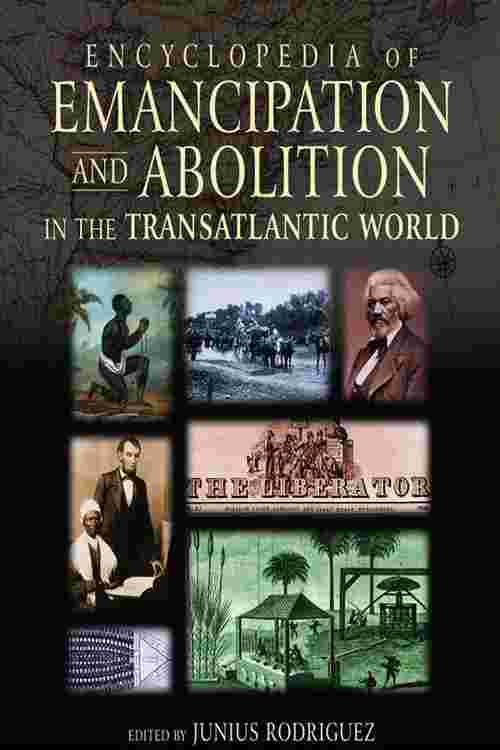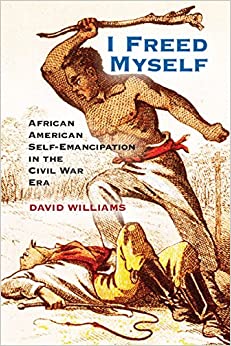
Although Abraham Lincoln declared the end of slavery on January 1st, 1863, it wasn't applied immediately to all those in slavery. Sadly, over two and a half years after the Emancipation Proclamation, and a further two months after the end of the Civil War, Union troops arrived in Galveston, TX, on June 19, 1865, to find that news of the proclamation had not yet reached the area and people were still being held as slaves. General Gordon Granger, head of the Union troops, announced the emancipation from the balcony of the former Confederate Army headquarters.
Juneteenth, also known by many other names including Freedom Day and Juneteenth Independence Day, commemorates this declaration of emancipation from slavery in Texas. Juneteenth was declared a federal holiday in 2021. We've put together this list of Juneteenth-related titles. Some of the eBooks listed below also have a physical listing. Please check the availability.
Special thanks to our Materials Processing Coordinator, Leah Zande, for compiling this list. Feature image by BP Miller on Unsplash.
Encyclopedia of Emancipation and Abolition in the Transatlantic World
Rodriguez, Junius (2007)
 The struggle to abolish slavery is one of the grandest quests - and central themes - of modern history. These movements for freedom have taken many forms, from individual escapes, violent rebellions, and official proclamations to mass organizations, decisive social actions, and major wars. Every emancipation movement - whether in Europe, Africa, or the Americas - has profoundly transformed the country and society in which it existed.
The struggle to abolish slavery is one of the grandest quests - and central themes - of modern history. These movements for freedom have taken many forms, from individual escapes, violent rebellions, and official proclamations to mass organizations, decisive social actions, and major wars. Every emancipation movement - whether in Europe, Africa, or the Americas - has profoundly transformed the country and society in which it existed.
This unique A-Z encyclopedia examines every effort to end slavery in the United States and the transatlantic world. It focuses on massive, broad-based movements, as well as specific incidents, events, and developments, and pulls together in one place information previously available only in a wide variety of sources. While it centers on the United States, the set also includes authoritative accounts of emancipation and abolition in Europe, Africa, the Caribbean, and Latin America. "The Encyclopedia of Emancipation and Abolition" provides definitive coverage of one of the most significant experiences in human history. It features primary source documents, maps, illustrations, cross-references, a comprehensive chronology and bibliography, and specialized indexes in each volume, and covers a wide range of individuals and the major themes and ideas that motivated them to confront and abolish slavery. - Publisher's Description
Request this Title
Juneteenth! Celebrating Freedom in Texas
Barrett, Anna Pearl (1999)
 The author recalls her childhood in Galveston, Texas, describing the town's celebration of Juneteenth, in honor of the day Texas granted its African slaves freedom. - Publisher's Description
The author recalls her childhood in Galveston, Texas, describing the town's celebration of Juneteenth, in honor of the day Texas granted its African slaves freedom. - Publisher's Description
Request this Title
I Freed Myself: African American Self-Emancipation in the Civil War Era
Williams, David (2014)
 For a century and a half, Abraham Lincoln's signing of the Emancipation Proclamation has been the dominant narrative of African American freedom in the Civil War era. However, David Williams suggests that this portrayal marginalizes the role that African American slaves played in freeing themselves. At the Civil War's outset, Lincoln made clear his intent was to save the Union rather than free slaves - despite his personal distaste for slavery, he claimed no authority to interfere with the institution.
For a century and a half, Abraham Lincoln's signing of the Emancipation Proclamation has been the dominant narrative of African American freedom in the Civil War era. However, David Williams suggests that this portrayal marginalizes the role that African American slaves played in freeing themselves. At the Civil War's outset, Lincoln made clear his intent was to save the Union rather than free slaves - despite his personal distaste for slavery, he claimed no authority to interfere with the institution.
By the second year of the war, though, when the Union army was in desperate need of black support, former slaves who escaped to Union lines struck a bargain: they would fight for the Union if it committed itself to freedom. Williams importantly demonstrates that freedom was not simply the absence of slavery but rather a dynamic process enacted by self-emancipated African American refugees, which compelled Lincoln to modify his war aims and place black freedom at the center of his wartime policies. - Publisher's Description
Request this Title
